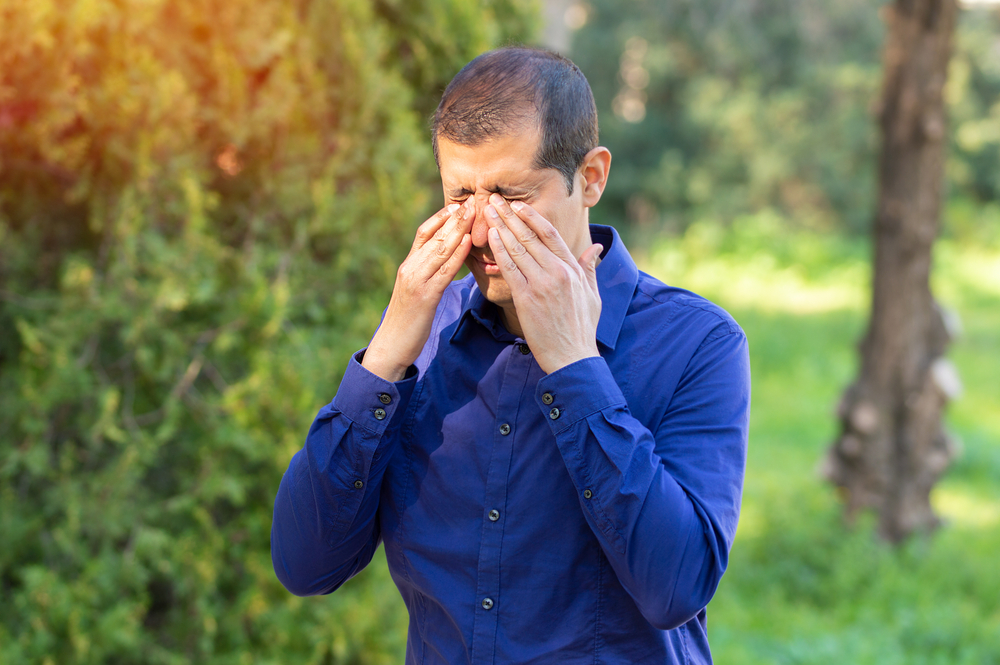
Are your eyes dry and gritty? Is your vision blurry? The reason behind your dry, irritated eyes could be the medication you’re taking.
Dry eye can occur as a side-effect of several different medications. Keep reading to learn more about how medications can cause dry eye!
What is Dry Eye?
Dry eye occurs when your eyes don’t produce adequate tears or make tears that are not of the right quality, causing them to evaporate rapidly. You may experience the following symptoms when you have dry eye:
- Redness
- Burning or stinging sensation
- Light sensitivity
- Eye strain
- Eye fatigue
- Double or blurred vision
- Difficulty wearing contact lenses
- Stringy mucus around or in the eyes
- Gritty or sandy feeling as if there’s something in the eye
- Excessive tearing, which is the body’s response to dry eyes
Can Medicines Cause Dry Eye?
Your tears comprise three layers: oily, watery, and mucus layers. Your eyes need the right balance of all three to stay lubricated, moisturized, comfortable, and healthy.
Any factor that affects the quality or quantity of your tears can cause dry eyes. This includes certain over-the-counter and prescription medicines such as:
Anti-histamines
Antihistamines provide relief from allergies, but they can also decrease your body’s ability to produce mucus and water. As a result, your eyes may produce fewer tears, leading to dry eye symptoms.
Anti-depressants
Tricyclic anti-depressants can impact the function of the lacrimal glands. When this happens, it can lead to diminished tear production and, consequently, dry eye.
The lacrimal glands secrete the watery layer of your eye that keeps your eyes moist. Examples of tricyclic anti-depressants include amitriptyline, doxepin, imipramine, clomipramine, dosulepin, and nortriptyline.
High Blood Pressure Medication
Beta-blockers such as propranolol and metoprolol are used to manage high blood pressure. However, they can affect the lacrimal glands and decrease the amount of tears your eyes produce, triggering dry eyes.
Diuretics such as hydrochlorothiazide and furosemide are also prescribed for high blood pressure. They work by increasing urine production, which can cause dehydration. When you’re dehydrated, your eyes tend to produce fewer tears, resulting in dry eyes.
Acne Medication
Acne medications such as Accutane can affect Meibomian gland function and induce dry eye. Meibomian glands produce the oily layer of your tear film.
Decongestants
Decongestants are used to ease nasal congestion when you have a cold, the flu, or a sinus infection. But they can also reduce mucus production, an essential component of healthy tears.
This may result in dry eye symptoms.
Parkinson’s Medications
Artane and trihexyphenidyl are medications used to treat tremors in patients with Parkinson’s. They’re known to disrupt the signals that prompt tear production, causing dry eye.
Birth Control Pills and Hormones
Hormone therapy for postmenopausal women, specifically estrogen-only formulations and birth control pills, may decrease the production of the oily layer of your tear film. In turn, this can make your tears evaporate faster, causing dry eye.
Painkillers
Pain relievers such as Darvocet-N, Ibuprofen, and Lortab can reduce tear secretion and contribute to dry eye.
How Can You Tell If Your Medication is Causing Dry Eye?
If you think your medications are the reason behind your dry eyes, don’t stop taking them, as it may cause harmful effects. Instead, see your primary physician and our expert dry eye specialist at Simone Eye Center.
Your physician may switch you to alternative medication or adjust your dosage to alleviate the side effects. Your eye doctor will perform an eye exam, identify the underlying cause of your dry eyes, including any medications contributing to your symptoms, and determine the most effective treatment plan.
They can provide treatments such as IPL therapy, autologous serum eye drops, OptiLight, or amniotic membranes to bring you lasting relief.
Get to the Bottom of Your Dry Eye Symptoms
There are many causes of dry eye, including medication. The only way to know for sure is to see our experienced dry eye specialist. After an accurate diagnosis, they’ll tailor an effective treatment plan to alleviate disruptive symptoms, improve your eye health, and enhance your quality of life.
Do you suspect your medication is causing dry eye? Schedule your appointment at Simone Eye Center in Macomb Township or Warren, MI today to start your journey to long-term relief!



